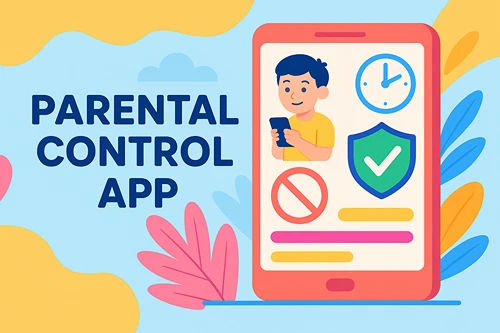How Can School Counselors Help Students with Anxiety?
With anxiety affecting nearly 1 in 8 children in the United States, its impact on school-aged children is undeniable. The pressure to succeed academically, navigate social relationships, and deal with personal or family stress can make childhood feel overwhelming, often leading to symptoms of anxiety that, if unaddressed, can harm a student’s development and well-being.
School counselors play a vital role in guiding students through these challenges. From providing emotional support to teaching practical coping skills, counselors are equipped to help students overcome anxiety and regain confidence.
Let’s explore some key ways school counselors support students dealing with anxiety.
What is the Role of School Counselors?
School counselors serve as trusted adults to whom students can turn in times of distress. While teachers primarily focus on academic instruction, counselors specialize in emotional and mental health, acting as intermediaries between students, teachers, and families to promote a safe, supportive learning environment. By being present in schools, counselors help reduce the stigma surrounding mental health, making students feel more comfortable seeking help when they feel overwhelmed or anxious.
School Counselors are Qualified to Handle Diverse Issues
School counselors undergo rigorous training to equip themselves for the challenges they face in schools. Among the various degrees for counselors, those who want to work in a school setting usually hold a master’s degree in school counseling or a related field, with coursework covering topics like child psychology, behavioral theories, and practical counseling techniques.
This education provides counselors with tools to understand and manage various mental health issues, especially those common among young people, such as anxiety. Moreover, counselors receive training in communication, active listening, and empathy, which allows them to engage with students in a way that builds trust and promotes open dialogue.
Identifying Early Signs of Anxiety in Students
One of the critical responsibilities of school counselors is to identify early signs of anxiety in students. Anxiety can manifest in different ways, from physical symptoms like headaches and stomach aches to behavioral changes such as withdrawal, irritability, or avoidance of school activities. Since students may struggle to articulate their feelings, counselors are trained to pick up on these cues, often through observing a student’s academic performance, social interactions, or even body language. Early identification is key to preventing anxiety from escalating, enabling counselors to provide timely support and intervention.
Building Trust with Students
For school counselors, building a foundation of trust is essential for effective support. Many students may feel hesitant to open up about their struggles, especially if they fear judgment or lack experience expressing their emotions. Counselors use techniques such as active listening, maintaining confidentiality, and offering empathy to create a safe, non-judgmental space. By showing genuine interest in each student’s well-being and respecting their feelings, counselors help students feel comfortable sharing their challenges, which is one of the first steps in tackling anxiety.

Implementing Personalized Support Plans
Each student’s experience with anxiety is unique, which means that a one-size-fits-all approach is rarely effective. School counselors work with students individually to create personalized support plans tailored to their specific needs and circumstances. These plans may include accommodations within the classroom, such as offering extra time on assignments or providing quiet spaces where students can take breaks.
Teaching Coping Techniques and Mindfulness Practices
School counselors play a pivotal role in teaching students practical coping techniques and mindfulness practices that can significantly reduce anxiety. These strategies may include breathing exercises, progressive muscle relaxation, or visualization techniques that help students manage stressful moments. Mindfulness practices like journaling and meditation can also be useful, giving students tools to calm their minds and refocus. By equipping students with these techniques, counselors provide them with lifelong skills to manage stress both in and outside of school, fostering resilience and emotional stability.
Collaborating with Parents and Teachers
Anxiety management often requires a collaborative approach, and school counselors actively work with parents and teachers to ensure consistent support for students. By involving parents in the process, counselors can provide insights into managing anxiety at home, including routines and habits that create a more calm and peaceful environment. Working with teachers, counselors help make adjustments in the classroom that reduce anxiety triggers, like allowing extra time for assignments or seating changes to ease social pressures. This teamwork establishes a support system around the student, ensuring they feel understood and safe both at home and in school.
Facilitating Peer Support Programs
Peer relationships can play a powerful role in helping students feel connected and understood, which can be especially valuable for those struggling with anxiety. School counselors facilitate peer support programs where students can share their experiences and learn from others facing similar challenges. When students know that there are others going through similar challenges, they don’t feel isolated anymore and the feeling of being part of a group can exacerbate anxiety. By encouraging a supportive peer network, counselors help create an environment where students can lean on each other, develop empathy, and build social skills that reinforce their ability to handle stressful situations.
Providing Referrals to Mental Health Professionals
Sometimes, a student’s anxiety may go beyond what a school counselor can manage alone, and in these cases, referrals to mental health professionals are necessary for their well-being. School counselors are trained to recognize when external intervention is needed and will work closely with licensed therapists or psychologists to coordinate care. This step ensures that students receive specialized support if required. Counselors maintain communication with the family and the mental health professional, fostering a comprehensive approach to treatment and ensuring that students receive consistent, high-quality care across different settings.
Promoting a School Culture of Acceptance and Understanding
School counselors actively contribute to shaping a school culture that values mental health and eliminates the negative thoughts associated with anxiety and other mental health issues. Through workshops, awareness events, and informational sessions, counselors educate students and staff about mental health, creating a more informed and compassionate school community. By promoting a culture of acceptance and understanding, counselors help normalize discussions around anxiety, making it easier for students to seek help and for teachers to respond empathetically. This positive environment empowers students to address their anxiety proactively, knowing they are supported and understood.
Undoubtedly, school counselors play an important role in supporting students who experience anxiety, equipping them with tools and strategies that can improve their daily lives and eventually their future. Their efforts not only address immediate needs but also lay the groundwork for students to approach challenges with a sense of control and self-assurance. Therefore, it is evident that school counselors are more than just support figures; they are vital guides, helping students build healthier, more positive paths forward.





